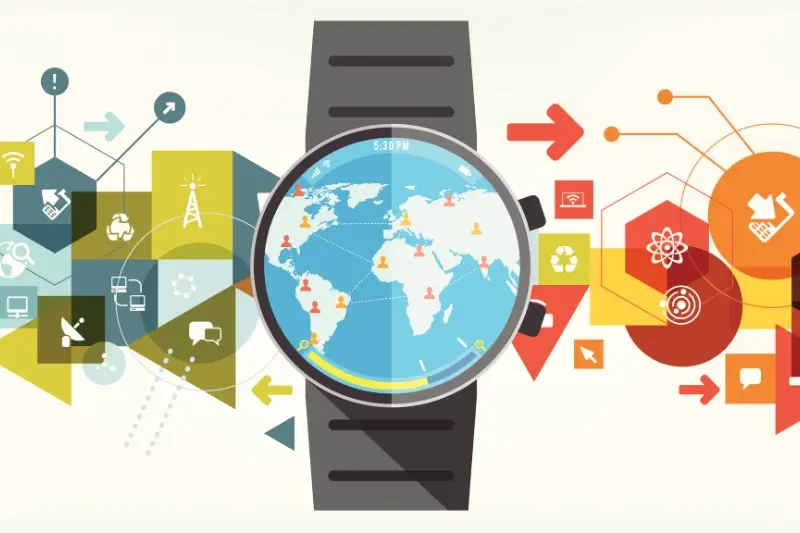In-House vs. Agency App Development: The Strategic Decision Framework
Deciding how to bring your app idea to life is a bit like choosing between cooking a gourmet meal at home or dining at a fine restaurant - both approaches have their merits, and the right choice depends on your specific situation. As mobile app development experts who've guided countless organisations through this decision, we understand the complexity of choosing between in-house development and partnering with an agency.
The success of your mobile app isn't just about the code - it's about making the right strategic decisions from day one.
Whether you're a startup founder with a groundbreaking idea or an established business looking to expand your digital presence, the development team model you choose will significantly impact your project's success. This critical decision affects everything from your budget and timeline to the quality of the final product and long-term app project management approaches.
In our experience working with clients across various industries, we've observed that the most successful projects begin with a clear understanding of both options' implications. Development knowledge transfer, resource allocation, and team dynamics all play crucial roles in determining which path makes the most sense for your specific circumstances.
Throughout this guide, we'll explore the nuances of both in-house and agency app development sourcing, providing you with a practical framework to make an informed decision. We'll break down the key considerations, examine real-world examples, and help you understand how each approach might align with your business objectives - no technical jargon, just straightforward insights from years of experience in the field.
Understanding Your App Development Options
When it comes to bringing your app idea to life, you're likely wrestling with that crucial question: should you build an in-house development team or partner with an agency? We completely understand - it's a bit like choosing between cooking a gourmet meal at home or dining at a renowned restaurant. Both options have their merits, and the right choice depends on your specific circumstances.
In-House Development: Building Your Own Dream Team
Building an in-house team means having dedicated developers who live and breathe your product. Think of it as having your own football team - they're there for every practice, know all the plays by heart, and wear your company colours with pride. This approach gives you direct control over the development process and allows for quick pivots when needed. However, it also means managing recruitment, training, and ongoing staff development - not to mention providing office space, equipment, and benefits.
Agency Development: Leveraging Expert Partners
Working with an agency is like bringing in specialist consultants who've tackled similar challenges countless times before. They arrive with proven processes, diverse experience, and a full toolkit of best practices. Agencies typically offer flexibility in scaling resources up or down based on your needs, and they've already invested in the latest tools and technologies. The trade-off? You'll need to build a strong communication channel and trust relationship with your external team.
Remember, this isn't necessarily an either-or decision. Many successful companies opt for a hybrid approach, maintaining a core in-house team while partnering with agencies for specific expertise or additional capacity. Just as you might cook most meals at home but occasionally enjoy a night out at a restaurant, the key is finding the right balance for your organisation's needs and goals.
Key Factors in the Decision-Making Process
When weighing up your app development sourcing options, several crucial factors come into play. Think of it like choosing between cooking a gourmet meal at home or hiring a professional chef - both approaches have their merits, but the right choice depends on your specific situation.
Project Complexity and Timeline
First, consider your app's complexity. Simple apps might suit an in-house team, much like how you'd tackle a basic Victoria sponge cake. However, if you're planning something more complex - think technical soufflé territory - an agency's specialized expertise might be invaluable. Development team models vary significantly in their ability to handle different complexity levels.
Long-term Vision and Knowledge Transfer
Consider your long-term strategy. In-house teams excel at retaining institutional knowledge and can evolve with your business. However, agencies bring diverse experience from multiple projects and often have established app project management approaches that can fast-track development.
Another crucial consideration is development knowledge transfer. If you're planning to eventually transition to in-house maintenance, ensure your chosen partner has a solid handover process. The best agencies will document thoroughly and train your team, rather than keeping you dependent on their services.
Before making your decision, create a detailed requirements document. This will help you understand the scope of your project and make it easier to compare different development options objectively.
Resource availability also plays a vital role. While building an in-house team offers more control, it requires significant time for recruitment, training, and team building. Agency partnerships can provide immediate access to skilled professionals, though at a higher initial cost.
Cost Analysis and Resource Implications
When it comes to app development costs, there's no one-size-fits-all answer - rather like choosing between making your Sunday roast or going to a restaurant. Both options have their distinct financial implications that need careful consideration.
In-House Development Costs
Building an in-house team requires significant upfront investment. You'll need to factor in permanent salaries, benefits packages, office space, equipment, and software licenses. Don't forget the often-overlooked costs of recruitment, training, and team building activities. A typical in-house developer in the UK commands anywhere from £35,000 to £75,000 annually, and you'll likely need several team members with different specialities.
Agency Development Costs
Working with an agency typically involves a more predictable project-based fee structure. While the hourly rates might seem higher at first glance (ranging from £75 to £150 per hour), you're actually paying for an entire team's expertise without the long-term commitments. Plus, you won't need to worry about holiday cover, sick pay, or quiet periods where your team isn't fully utilised.
Resource-wise, agencies come with ready-made teams, established processes, and tried-and-tested tools. Think of it as plugging into an existing ecosystem rather than building one from scratch. However, this convenience comes with less direct control over the development process and potentially less immediate availability for quick changes or updates.
The most cost-effective choice often depends on your project's scope and long-term plans. If you're planning multiple apps or continuous development over several years, in-house might make more sense. For one-off projects or organisations without tech as their core business, an agency could prove more economical.
Team Structure and Project Management Approaches
When it comes to app development sourcing, one of the most crucial aspects to consider is how your team will be structured and managed. Both in-house and agency models offer distinct approaches to project management and team dynamics.
In-House Team Dynamics
In-house teams typically follow a vertical structure where developers report directly to internal project managers. This setup often means more direct control over daily operations and immediate access to team members. However, it also requires establishing proper development knowledge transfer protocols to prevent knowledge silos and ensure continuity when team members leave.
The strength of your app development team isn't just about technical skills - it's about how well knowledge flows between team members and across project phases
Agency Team Advantages
Agency development team models often provide a more flexible structure with pre-established project management approaches. Think of it like having a well-oiled machine that's already fine-tuned - complete with project managers, QA specialists, and developers who have worked together on numerous projects. This setup typically means faster ramp-up times and proven workflows.
The key difference lies in communication patterns. In-house teams might pop over to each other's desks for quick chats (or send a quick Slack message if working remotely), while agency relationships usually involve more structured communication through scheduled check-ins and formal project management tools. Rather like comparing a family dinner (in-house) to a professional networking event (agency) - both can be effective, but they operate quite differently.
For organisations juggling multiple projects, agencies often bring tried-and-tested project management approaches that can help maintain consistency across different initiatives while ensuring proper resource allocation.
Conclusion
Choosing between in-house and agency app development isn't a simple black-and-white decision - it's rather like choosing between cooking a gourmet meal at home or dining at a fine restaurant. Both options have their distinct advantages, and the right choice depends entirely on your unique circumstances.
Throughout this exploration, we've seen how factors like budget constraints, time-to-market requirements, technical expertise, and long-term maintenance plans all play crucial roles in making this strategic decision. Much like building a house, the foundation of your choice needs to be solid and well-thought-out to ensure success.
Remember, there's no universal 'right' answer. Some organisations thrive with in-house teams, whilst others achieve remarkable success through agency partnerships. You might even find that a hybrid approach, combining internal resources with agency expertise, works best for your situation - rather like having a skilled chef come to your home to cook alongside you.
The key is to carefully evaluate your organisation's specific needs, capabilities, and goals. Consider your long-term vision, available resources, and the complexity of your app project. Be honest about your team's strengths and limitations, and don't shy away from seeking external expertise when needed.
Whether you choose to build in-house or partner with an agency, success lies in making an informed decision based on thorough analysis rather than assumptions. Take your time with this decision - after all, your choice will significantly impact your app's development journey and its ultimate success in the market.
Share this
Subscribe To Our Blog
You May Also Like
These Related Stories

Designing with Intent: How to Align App Features with Business Goals

Why Your Business Should Consider Wearable App Development





